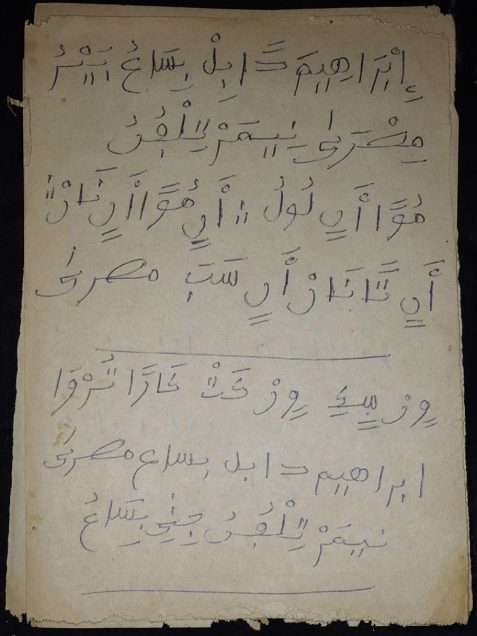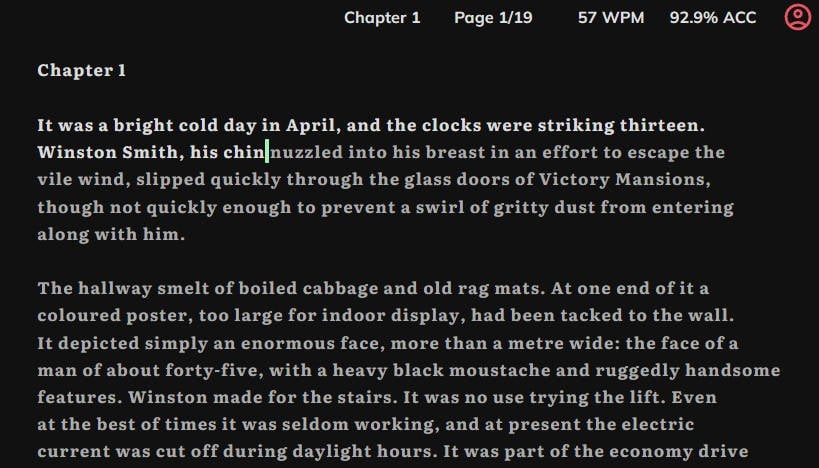Linkfest #1: "New Mannahatta", Spiderweb Cognition, and Novelists Who Use ChatGPT To Plot Their Books
"New Mannahatta", Spiderweb Cognition, and How Novelists Use ChatGPT To Plot Their Books
Welcome to the latest edition of the Linkfest! Thank you for being a subscriber; if you're enjoying it, spread the word -- it's a pay-what-you can signup here; the folks who can afford to contribute help keep it free for everyone else, too.
All right, let's get to it! Here's the best stuff I found online this week, and some thoughts on it ...
1) 🧱 Monochromatic Lego sculptures

Jan van Schaik was messing around with Legos, and decided to make an abstract building using only one color of brick: “The first one I made, I made by accident, like a three-dimensional doodle,” as he tells Colossal.
He went on to do a whole series, and they're fascinating to see! Typically when I think of Lego I imagine a riot of color; part of the fun in building a street scene, for example, is including all manner of differently-colored people and vehicles and objects.
But when you use only a single color for an abstract form, Lego takes on a really subtle textural quality: You start to notice the glossy plastic-ness of it -- how it reflects light, how the seams form line-drawings of hairline fractures through the work.
As he says:
“Architecture is for everybody, and everybody is aware of it, whether they intend to be or not, whether they’re conscious of it or not,” the artist shares. “That’s why (the works) have a strange familiarity.”
There are many more pix of those works at the Colossal piece, and at van Schaik's web site.
2) 🖊️ Recovering an ancient written script in Africa

Colonial Europeans who headed to Africa claimed that the populations they encountered there were illiterate, without a written language. That idea persisted for a long time; when the anthropologist Fallou Ngom grew up in Senegal in the 60s and 70s, he assumed people like his father, who could not read or write French — the official language of the country — were illiterate.
But after his father died, he discovered a note his father had written to a local trader, in a curious script that looked like Arabic, but wasn’t. When he checked with the trader, it turns out that trader had also written a note about the same transaction, written in the same script.
The script is called “Ajami”, and as Ngom As documented, those supposedly illiterate populations have been using it since the 10th century, to write down dozens of local African dialects.
He found this modified Arabic script everywhere. Shopkeepers kept records with it and poets wrote sprawling verses in it. Ngom discovered religious texts, medical diagnoses, advertisements, love poems, business records, contracts, and writings on astrology, ethics, morality, history, and geography, all from people who were considered illiterate by the official governmental standards of their countries. [snip]
Some of the documents Ngom found on subsequent trips to the continent showed that their authors were code-switching throughout the text: writing in strict Arabic and in its modified Ajami form. Not only were such writers literate, they could also read and write in multiple languages.
“It was shocking,” says Ngom, who has helped build a vast digital library of Ajami texts at BU. “It was so shocking to me when I realized how misguided I was as a result of my training, which is a French-based system. But not only were my dad and many people like him documenting their lives, many highly educated people were using Ajami to write poetry, literature, these kinds of things.”
Incredibly interesting! And revealing of the huge problems in the colonial worldview, which often still resonates today, unfortunately.
3) 🔧 The "Flipper Zero", a Swiss Army Knife for hacking into devices

The "Flipper Zero" is a little $200 pocket computer with tons of sensors and antennas that let it read different forms of radio-wave info. This means it's great for swiping info that leaks out wallets, smart doors, restaurant signs, etc.
Over at Wired, Dhruv Mehrotra gave it a whirl:
Indeed, it’s easy to imagine how someone could break the law or even just get up to some petty mischief with this device. For instance, not only was I able to clone the ID badge of my office with Flipper Zero, I was able to record the signal that my neighbor’s garage door opener makes when he pulls into his driveway. Older cars that don’t use rolling code encryption are likely unlockable with the device, and my Flipper Zero was able to read my credit card number through my wallet and pants.
It's like a Sonic Screwdriver for hackers both white- and black-hatted. I really wanna get one of these things and give it a whirl ...
4) 🤖 Interview with a writing using ChatGPT for her novels
Over at the Verge, Josh Dzieza interviews Jennifer Lepp, who's been using ChatGPT to help write her paranormal-mystery novels.
It's fascinating: Lepps says all the genre novelists are messing around with ChatGPT and finding it eerily good and frequently quite useful in keeping forward momentum. It's apparently amazing at rewriting passages in the style of any author you can suggest, though the novelists all say they'd never use ChatGPT for that; they'll all queasily aware of the ethical morass of the AI being trained by masticating the writing of actual real-life writers.
So what does Lepp use the AI for? Plotting, mostly:
Right now, I use it for titles and plots — specifically mystery plots. And blurbs.
I basically started out by just telling it who I am and what I need. “I am writing a paranormal mystery that takes place in the small town of Table Rock, Texas. It has a female amateur sleuth. This is her name. I need a murder victim. I need how they were killed. I need four murder suspects with information about why they’re suspected and how they are cleared. And then tell me who the guilty killer is.”
And it will do just that. It will spit that out. [snip]
Right now, I have [plots for] books two, three, four, five, six, and seven, and all of those murder mysteries were ChatGPT-generated, though I edited some of them. The impressive thing about it is that if I tell it that it’s a cozy mystery and I tell it that it needs to be humorous, it seems to understand what I’m asking for. The names that it gives me for the suspects are cutesy. The reasons behind it are never gory or serious.
That's an interesting ethical distinction the authors are making -- between using ChatGTP for plot versus using it for style. In both cases, the core ethical issue is: Is it intellectual theft to use an AI trained on the text of other writers?
Now, I know some AI folks say "hey, aren't large language models doing a thing similar to what humans do -- i.e. absorbing tons of words by other people, and thereby absorbing 'how to write'?" To which we can say: a) sure, in a very surface-level sense, except b) ChatGPT is a product of a deathless industrial process capable of inhaling and producing text at the speed of nanometer silicon, which is ... a qualitatively different endeavor. It's not really comparable to a single human reading a book a day, or writing 20 pages of a novel a day.
The authors grasp this distinction, of course, hence their ethical concerns. What's intriguing is where they've landed: That deriving a plot feels less like industrially-scaled theft than deriving style. I get where they're going with that! A plot is a critical part of a novel, but it's more like, I dunno, the wireframe? It takes creative work to craft one, for sure. But maybe it feels less directly personal than the act of writing the sentences, and crafting one's phrase-by-phrase style?
Interesting to think about. These sorts of talmudic ethical parsings of AI are only going to become more common and necessary in everyday work and life, I suspect.
5) ⌨️ Practice your keyboarding by typing out classic novels

TypeLit.io is a fun concept: You practice your typing by rewriting classic novels, word for word. Above? That's a screenshot of me beavering away at Orwell's 1984. It's kind of surreal to retype a book. In one sense, it's a terrible way to learn typing, or to practice typing; the syntactic cadences and language of many of these novels is a bit dated (inherently, since they're all old enough to be in the public domain). So I doubt this is useful for actually sharpening one's keyboarding.
But it might be curiously useful for learning how to write.
There might be something quite powerful about typing out a famous writer's prose, line by line, yourself. It could really drill their style into your head. It reminds me a bit of the ancient-Greek injunction that to become a poet one must memorize huge amounts of poetry -- so that those cadences are truly etched into your soul and your own aesthetic.
Typing out all of 1984 could be fabulous for inhaling Orwell's style, and learning from it.
6) 💡 Lamps made from McDonald’s food cartons

During the early pandemic, Gyuhan Lee was ordering a lot of McDonald’s to be delivered to his studio, so he had tons of excess McDonald’s bags and cartons lying around.
He decided to recycle the waste into series of gorgeous paper lamps, which emit a surprisingly peaceful hue — who would’ve thought that the color of McDonald’s packaging could be so fetching when the light shines through it?
He says it’s a commentary on his own consumerism merged with a traditional art form, specifically …
… Hanji, a Korean traditional paper, into his lamp sculptures, adding another layer to the shared synergy between the brand and his artistry.
7) 🏗️ Building "New Mannahatta" by extending Manhattan into the rivers around it

New York City needs two things: 1) protection from storm-surge flooding (climate change is jacking the risk of flooding way up) and 2) more housing. Desperately, more housing.
Jason Barr, a professor at Rutgers, has a plan to address both at once: NYC, he says, should build an entirely new borough of the city -- "New Manhattan" -- by reclaiming 1,760 acres of the surrounding rivers and ocean. Build out into the water, and you'd provide a buffer from storm surges (if you built carefully and with storms in mind) while adding 178,282 new housing units.
He calculates that it could pay for itself with real-estate taxes on the new buildings, plus the surge in economic activity. As he says ...
“The point is that while such a plan might cost maybe $100 billion to build, the market value of the new buildings can be worth an order of magnitude more by virtue of the new housing, new offices, new retail, new hotels, new museums, new schools, etc.,” said Barr.
Yowsa: Whatever else, you can't accuse this dude of thinking small! Personally I'm intrigued by the idea -- all cities need more housing, and in a landlocked place like NYC, the water is the only open space. The city is already considering an expansion into the sea, to create a storm-surge buffer, but they only plan to make small incursions ... nothing so grand as what Barr proposes.
Me, I'd want to see an analysis of the impact on the local water ecosystem. But the concept is damn intriguing.
8) ⚾️ A final, sudden-death round of reading material
Building a Commodore 64 from scratch. ⚾️ Doing an "Advent of Code" on a Playstation, using Dreams. ⚾️ How Romanticism was forged in Germany's "Jena Set". ⚾️ "Spiders appear to offload cognitive tasks to their webs". ⚾️ A new paper finds that, no, the Saturn V wasn't loud enough to "melt concrete". ⚾️ POV cam of Dolpins hunting. ⚾️ A computer speaker that tracks your head position to optimize the sound. ⚾️ "The Diffusion of Disruptive Technologies". ⚾️ Fifty years of "The Handbook of Integer Sequences." ⚾️ Weird metal that’s also glass and is insanely bouncy. ⚾️ GTP takes the bar exam. ⚾️ Trolling as a service. ⚾️ Cloud colonialism. ⚾️ "Leaving", a site that when you visit it, tells you how many other people are also looking at it -- but nothing else. ⚾️ Are layoffs contagious?